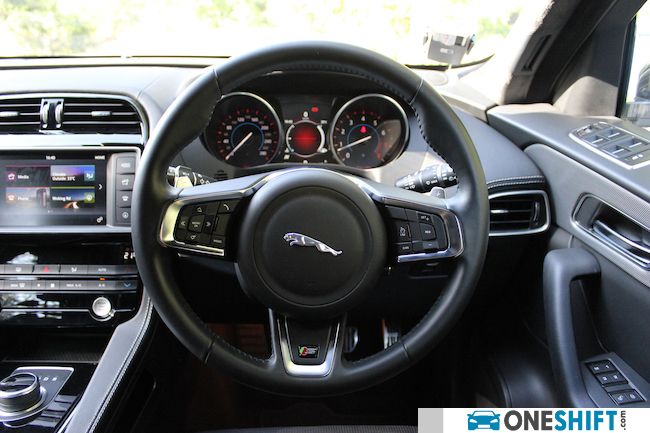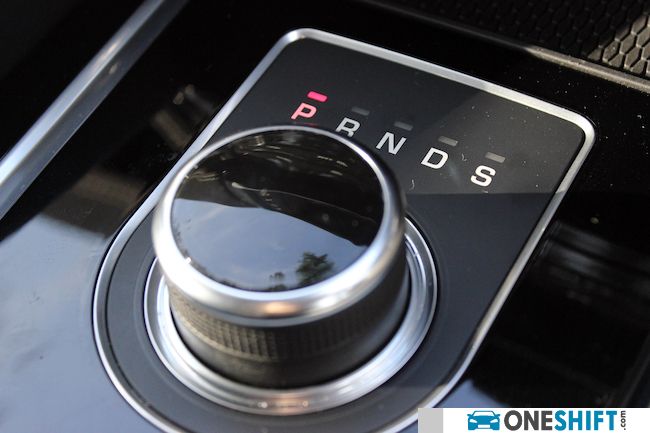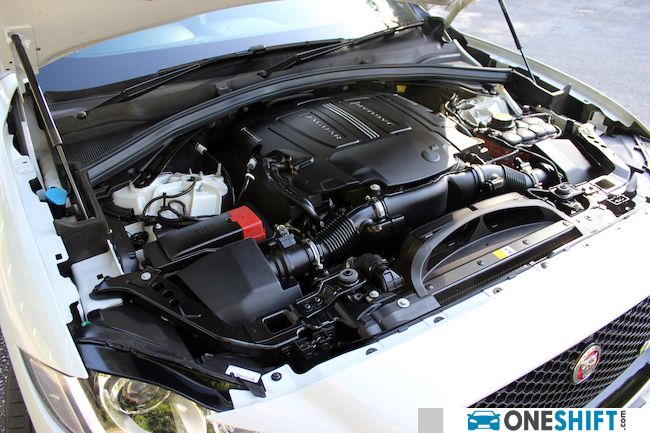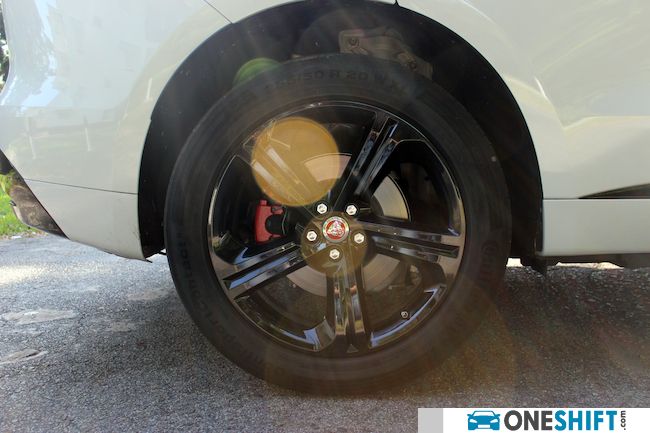Epic Pace
Ever since Jaguar got itself a fresh injection of funds, things have been shaking up. Shaken up awake and frothing at the mouth is the Jaguar F-Pace S. A 3.0 V6 with a supercharger bolted on sits under the hood. I knew something was stirring, but I wasn’t sure what it was just yet.



The accelerator is extremely reactive, and poking it slightly gives you a jab in your back, as the car accelerates rapidly. The twin-vortex supercharger does like to get the car accelerating. It did take a while to learn that light inputs were all that were needed to drive the car smoothly. Gear changes are quick from the ZF 8 speed transmission, although under hard acceleration, there is a bit of a jerk between first and second. Maximum torque is at 4,500rpm, and is rated at 450Nm, which is more than enough for you to have yourself a “high-speed-elephant” in your car. Maximum power is a whopping 380Bhp at 6,500rpm.

Switching drive modes is not intuitive, as there is no drive mode knob to press, you do instead get a left and right button selector on the centre console, which you would need to hunt for if your eyes are glued to the road. The gear selector knob does not help much too, as it would also be more intuitive to lug a stick into position than to turn a knob. I did have a little bit of fear clicking myself into ‘Neutral’ in the beginning.

While the F-Pace may come across as rather large, thanks to its lightweight aluminium shell, and suspension, it took on directional changes very well, and did feel settled at all times. “Sport” mode on the F-Pace can come across as brutal, and you’d not want to have it on this mode daily. Steering is quick, but feel is a little artificial, though, you get sufficient feedback. The four wheel drive on the F-Pace is variable, but in most cases, delivers power with a 20:80, front-rear bias. Meaning that when taking corners and powering out, it would feel more rear than front drive. In contrast, the Lexus RX350 we recently tested tends to power the front wheels more.
On the flip side, “Eco” mode makes the car a joy to drive in normal traffic situations. The suspension soaks up the bumps well, and gear shifting is slower, but also gentler.

While we do know that there is some supercharger whine, we did not like the noise that the engine made when given the beans. Artificial, almost like the acoustic engineers used a 16-Bit Sega game for inspiration.
The F-Pace is a great performer. We did however expect better thinking through in-terms of user ergonomics, instead of overthinking about how to make the interior pretty. Plenty of points though, for the exterior styling.
But that buzzy engine note, the acoustics guys should have worked harder.
Credits:








Get the Best Price for your used car
from 500+ dealers in 24 hours

- Convenient and Hassle-Free
- Consumer Protection
Transparent Process
With No Obligation








